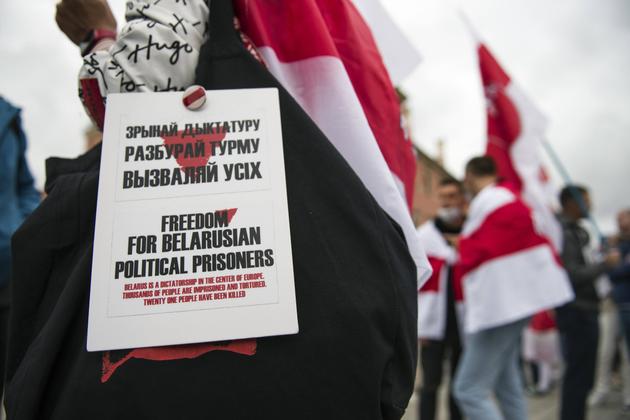

Belarus: The opposition tries to get out of Lukashenko's trap
NewsThe Belarusian leader is blocking exiled critics from renewing their documents abroad to force their return. Meanwhile, Sviatlana Tsikhanouskaya's alternative government is pushing for EU recognition of their new passports.

Forced into exile since 2020, the Belarusian opposition remains under constant attack from Alexander Lukashenko. On Thursday, January 4, the Belarusian leader in power since 1994 granted himself lifelong immunity by signing a new law stating that he "cannot be held responsible for acts committed in the exercise of his presidential powers." At the same time, the text prevents opposition leaders living abroad from standing in the forthcoming presidential election, theoretically scheduled for 2025.
From now on, only citizens who have been resident in the country for at least twenty years and who have never obtained a residence permit in another country will be able to stand in national elections. According to the human rights NGO Viasna, 500,000 Belarusians have left the country since the terrible repression of 2020. A record figure for this country of less than 10 million inhabitants.
Electoral ineligibility is just the latest effort to silence the opposition. On December 24, 2023, Viasna disclosed that "at least 125 people were arrested at the border upon returning to Belarus in 2023." A year ago, the dictator claimed to want to extend an olive branch to exiles by creating, in January 2023, a "return commission" aimed at ensuring their immunity from prosecution.
For this to happen, two conditions were required: in an online form, candidates for return had to "recognize Lukashenko as President of Belarus" and "admit the crimes they committed in 2020," according to the commission's website.
Lukashenko's announcements were motivated by the desire to address the "shortage of medical specialists and engineers that Belarus is currently facing," according to Alice Syrakvash, the president of the main association of the Belarusian community in France. However, according to Pavel Latouchko, deputy director of the United Transitional Cabinet of Belarus (UTC), formed in August 2022 by the exiled leader of the opposition, Svetlana Tsikhanovskaya, attracting these highly skilled workers was not the main objective of the autocrat: "Lukashenko never forgets his enemies; he seeks revenge against those against him."
Insidious strategies
In terms of return, no "amnesty" seems to be guaranteed. In February 2023, the Belarusian government television broadcasted an interview with opposition member Tatiana Kurilina, in which the host claimed that this administrator of an opposition Telegram channel had returned to Belarus after leaving Poland, "thanks to the program launched by the government." In reality, she was detained and subsequently sentenced to four and a half years in prison for "extremism."
You have 50% of this article left to read. The rest is for subscribers only.
